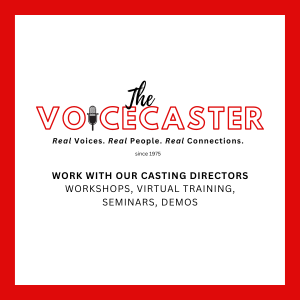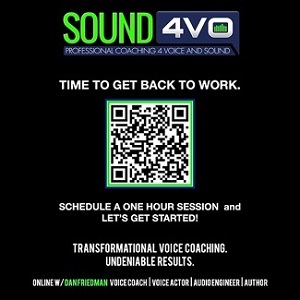|
PART 1 Marketing To Eurozone Voice Clients: Q&A With bodalgo's Armin Hierstetter October 5, 2011
 By Tom Test By Tom TestVoice Actor At the recent FaffCon 3 "unconference" (Sept. 23-25 in Hershey, PA), I was spontaneously moved to lead a discussion on "How American Talent Can Find More Work Internationally.” It is not a topic I am an expert on, but there was enough collective wisdom in the room that a great deal of useful information was shared. It became apparent that there are real differences in business customs, etiquette, etc., between the U.S. market and global markets. Hungry for more information, I realized that the perfect person to give advice on this issue was Armin Hierstetter, owner of bodalgo.com. This is a European P2P online voice over casting site, a counterpart to North American companies such as Voices.com and Voice123.com. And bodalgo carefully screens talent before inviting them to be represented. Armin was very generous with his time to answer my emailed questions, and passed along a great number of insightful and helpful tips, which I'd like to share with you now. Below, my questions are in bold italic type, followed by Armin's answers. Armin, what sorts of European projects have a need for American-accented voices? Is there much demand for American voices for radio and TV spots? What sorts of industries need American voices for their sales-related scripts? And is there demand for more niche markets such as animation, telephony, live events, kiosks, etc.?  I think there is a bit of a misunderstanding here. I think there is a bit of a misunderstanding here. US talents tend to think - at least, I feel this is the case - that Eurozone clients don't want US voices or favor UK voices over US voices. Clearly, this is not the case. Sure enough, a UK-based client will want a UK voice most of the time. But continental Europe differs from this big time. Clients just want a "native English voice." Very often they don't even think about the fact that there are many different ways of English out there. WANT NEUTRAL ENGLISH This is where the term "neutral/mid-Atlantic English" comes into play. Wikipedia defines this as "a cultivated or acquired version of the English language that is not a typical idiom of any location. It blends American and British without being predominantly either." In other words: You can't really tell where the talent speaking mid-Atlantic is from. And that's exactly what somebody wants that needs a voice over made for products with a very wide target group - for example, online videos. The viewers/listeners may come from all around the world, so it's best to have an English voice that sounds like it could be from anywhere, still native, though. NATIVES PREFERRED But like I said earlier, most of the time, voice seekers in Europe don't care about the nature of the English as long as it's native. When it comes to TV and/or radio advertising, voice seekers want a voice from the region in which the spot airs, of course. A strictly US business would probably not go for an Aussie talent, nor would the Brits look into a Texas talent most of the time. In addition to working with bodalgo, how can we connect with the producers who are looking for native American voice talent? Is there some central source to discover European advertising agencies, productions companies, etc? Is it proper to approach such companies without a personal introduction? We call this "cold-calling." Regarding lists of agencies, etc., I am not sure whether researching and contacting them will do any good. Most of the time, agencies don't even respond - or already have enough talents of your kind.
My gut feeling tells me it'd be a waste of time compared to other ways of marketing your voice, including sites like bodalgo. And I would like to take the chance to say "Hello" to the folks at voices.com - keep up the good work.
What about expanding our reach into emerging markets such as Russia, Africa, the Middle East, Turkey, etc.? What sort of opportunities are there?
English is spoken in more countries than any other language, so reaching out to other markets is a good idea in general.
And, of course, bodalgo tries its best to open up those markets for our talents to be more successful, in order to be more successful ourselves, sure.
Another way of getting your teeth into those markets could be running campaigns on Google in those regions linking to your services. But that's a field too wide to open here.
Bodalgo will offer tutorials in the very near future that will cover many aspects of the voice over world, one being "how to market yourself as a talent."
What are the cultural and business etiquette differences that Americans need to be aware of, so as not to offend or disappoint European potential clients?
Does your answer change depending on the particular nation in question, or do all these tips generally apply equally well across all European nations? I wouldn't think too much about differences, as there is one guideline that is valid no matter where you go: Be friendly, proactive, and good to work with and you will be just fine.
No client that you actually want to work with will feel insulted if you begin a letter with "Dear Armin" instead of "Dear Mr. Hierstetter."
To be on the safe side, you might want to use their last name, but I really don't think that matters in the end.
SHORT AND SIMPLE
Far more important: Keep your letter like your demos: Keep it short and simple.
Always communicate a unique benefit for the client choosing your voice.
This could be your above-the-average studio equipment, your references from clients with same needs, a fast turnaround, or even the fact that you happen to live just around the corner of the client's offices.
What is the best method for payment for VO services, with the best qualities of reliability, wide acceptance, and low fees?
That's an easy one: PayPal. Opening an account is free, the transfer of money works fast and flawless, and their fees are highly competitive.
I know there are people out there that have no good feeling about PayPal, but for the purpose it has been created, I believe they are the best option by far.
I also experienced that more and more voice seekers are willing to pay using PayPal.
What is the best way to connect with clients who wish to direct me while recording? ISDN? Skype? Source Connect or Audio TX?
In Europe, SourceConnect is rather unknown. They use ISDN codecs over here, with Maya/APTX leading the charts.
I am not sure whether those ISDN codecs are compatible, and to be honest, I don't care, because the absolute majority of clients don't have ISDN themselves as they are simply mid-sized companies looking for a voice and not studios.
So the good old telephone or Skype would be the normal option if the client wants to follow the recording. And that's hardly the case at all.
Still, having a practical solution to have telephone and/or Skype to be integrated in your recording setup is a nice add-on, but not a must in my opinion.
How can we tailor our demos to suit the needs and tastes of European talent buyers?
Most American narration voice over demos from the major markets (LA/NYC/Chicago) are about 60 seconds, have 4-8 clips of 6-12 seconds length each, usually with sophisticated music tracks and production values. Is this what your talent buyers need and want? Talking about non-custom demos, I have one word for you: KISS. Keep It Short and Simple.
In an ideal world, you'd have a set of standard demos for different types of jobs.
For example, there is one where you cut through some commercials, another one features narrative stuff, a third one is IVRs/announcements.
Next in the line is training/e-learning and one that combines the other four. An ideal demo, in my opinion, starts with slating the talent's name, followed by a voice only clip - no music, sound f/x - blending into produced stuff with music, sound f/x where appropriate.
NO LONG DEMOS
Length: no longer than 30 to 45 seconds maximum.
Why that short? Because I am a firm believer that a voice seeker decides within seconds whether she/he likes the voice or not.
There is no need for long demos, as probably nobody will hear them until the end.
That's not because voice seekers don't appreciate the effort one puts in her/his demo, but simply because it does not take that long to judge whether a voice could be right for a job or not if the demo is produced well.
See Part 2: Standards more strict for copyrighted material on demos; audition recording quality must be top notch. ABOUT TOM ... Tom Test is a top voice over and on-camera talent, based in the Midwest U.S. since 1990. He has voiced many Telly- and other award-winning campaigns, and is currently heard voicing national spots for 1-800-Contacts, Mercury Marine and Snapper Mowers. Operating his Chicago-based ISDN-equipped broadcast-quality studio, Voices On, since 2003, his slogan, "The Voice You Trust,” reflects the popularity of his "warm and authoritative” read for health-care and other clients. Email: tom.test@yahoo.com Web: www.tomtest.com bodalgo: www.bodalgo.com |
|
|
With Sean Daeley and Paul Stefano - check it out!
For essential voice-over business strategies
Get your bi-weekly dose here ... all things VO!
On Michael Langsner's Voice-Over Roadmap Podcast
As of the NEW website launch, 03/22/2012







.png)


Thank you,
Judy Fossum
I have a feeling that Aussies might be aghast to hear our Outback Steakhouse spots (to my ear, that guy sounds American to me...).
In the UK there is a belief amongst VOs not making a living that the US is waiting for them and the opposite is true. When we discover that neither is the case we then victimise the poor unsuspecting people in the Eurozone ..Guess what? They're not in the market for crappy VOs either!
If YOU are good enough at home then you are good enough ANYWHERE and other markets will welcome you with open arms.
Thank you for giving Armin Hierstetter the opportunity to give us some insight into the European voiceover market.
In terms of expanding business, I often find Americans a bit provincial. Things outside their borders are labeled as "strange," because the rest of the world does not always do what Americans do.
It is time that we in the States develop some sensitivity toward our European colleagues and clients. The world we live in is getting smaller by the day and we need to expand our professional horizons.
I do business with Europeans on a weekly basis and I know for a fact that they would often appreciate a more tactful and modest approach from voice talent.
Most Europeans prefer to let others sing their praises, instead of tooting their own horns all the time.